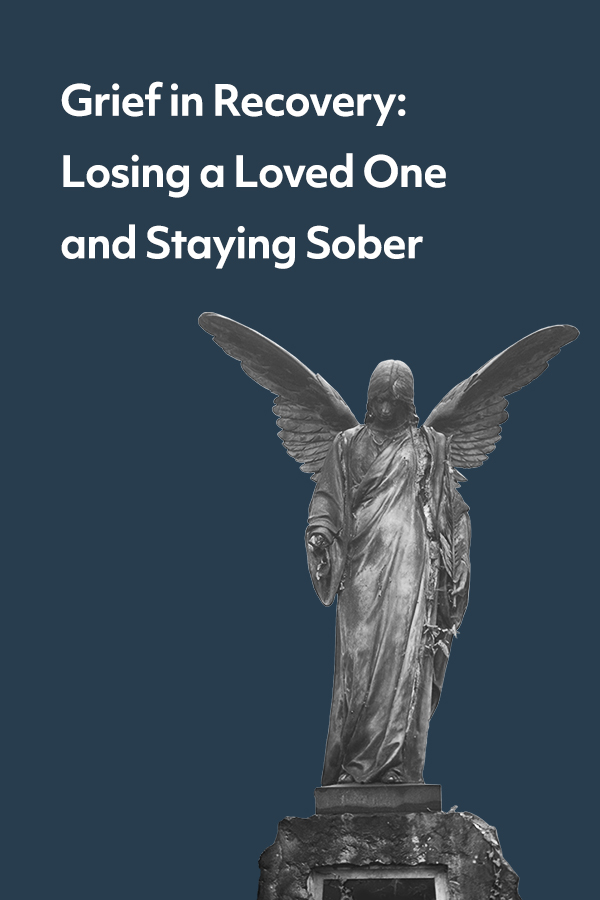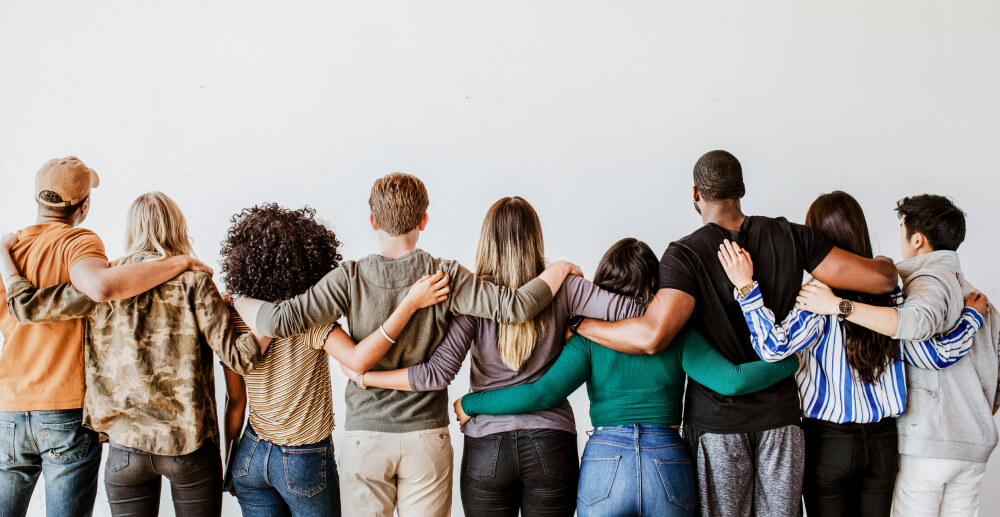The coping skills and friends we find in recovery are a huge help, but they don’t protect us from grief and pain.
Sobriety isn’t just staying clean when things are going well. Recovery isn’t just politely declining a random drink at the bar. It’s when the unthinkable happens, the stuff that you swore you’d drink over occurs, and you still don’t pick up.
Early sobriety gave me a solid foundation
It’s not easy to get sober. For me, I had to reach a bottom. I’m not talking about a bottom in the sense of losing money, jobs, relationships, or possessions, although those did happen. True bottom, in my opinion, is when at the pit of your soul, you know that you can’t go on living in pain another second. It’s the gift of desperation. A person doesn’t have to lose everything—or anything—to reach this point. When you feel it, you know. Then the journey to recovery can begin. When the pain of things staying the same is greater than the pain of change, that’s when it happens.
In early sobriety, life can seem insurmountable. Small annoyances and relationship hurdles that would previously make the newly sober person drink are everywhere. I learned how to manage these difficulties through the experiences of others that walked the path before me. The insight and camaraderie of friends in recovery are invaluable to this day. Learning that I wasn’t alone in navigating a sober life was the cornerstone to my recovery. Getting a solid sober foundation helped me begin my new life. Nobody promised me that things would get great right away, but they promised things would be different. That I could stay sober no matter what.
Losing my father threw my emotional stability off track
Throughout the first 7 years of my recovery, I experienced a range of troubles that are common to any human being. I was fired from jobs, lost friendships, and had my heart broken. Although all of these losses were painful in their own ways, none of them were worth drinking and using over. Then in 2019, my father was diagnosed with Stage 4 Pancreatic Cancer, and my world began to collapse. It was a pain greater than any I had ever known. The true meaning of powerlessness began to set in. An invisible force began to take my father away from me. The pain was so intense it was nauseating, and all I could think of was, “How can I save him?”
But I knew, deep down, that I couldn’t save him.
The cancer would consume his body, and he died at 59 years old, 6 months after his diagnosis. My mentor, my friend, one of my biggest fans … my father was gone. When I got the call that he had passed, I drove directly to one of my 12-step meeting halls. I shared and I cried. That’s one of the things I’ve done right for myself over the years of recovery. When life gets tough, I walk into a meeting. I share honestly and get vulnerable. I continued to show up to meetings and do this, but I was finding it wasn’t enough.
12-step recovery does a great job at helping me maintain my sobriety. Although it isn’t a cure-all, it allows me to have a chance at being honest, open, and willing to get the help I need in other aspects of my life. I didn’t know what to do with all this pain. Grief penetrated every aspect of my life. I went through a breakup within a month after my father’s death. As amiable as the breakup was, it was still another loss. The best I could do was not pick up a drink. To be honest, it never really crossed my mind. Sure, I wanted the pain to stop, but drinking just wasn’t necessary for me. Over the years, I had developed other methods to deal with pain, like being a workaholic.
After ignoring my feelings for a long time, I finally had to face them
I’ve been a touring stand-up comedian for 11 years now, and at the time of my father’s passing, my career took a huge leap. I was brought along to be the opener for one of my best friends. He had just gotten famous on television. I threw myself into my career and packed the pain from my father’s death away in the cabinets of my mind. If I kept moving, it couldn’t catch up with me.
Then the pandemic hit. It was like I’d been driving a station wagon packed with all of my emotional baggage 100mph, and had just slammed into a brick wall. The feelings flew all over the place. I had nowhere to run.
I had picked up another relationship along the way. The grief had been so all-encompassing that it really made me incapable of being a good partner. That relationship ended. The pain was unbearable. I knew I needed help beyond what I was getting in the (now digital) meetings. I started the grueling process of finding a therapist. It took me over a month of jumping through hoops with insurance and making calls to find a therapist that specialized in grief. I can honestly say I worked as hard at finding him as I once did looking for drugs. I was that desperate.
Working on the grief through talk therapy started to ease the pain. I learned that I had to grieve how much I loved and missed my father. I also had to grieve the parts that weren’t so great about our relationship. The times when I was drunk. The times when he and I butted heads, yelling at each other. I had to mourn all of the things that I would never get to say to him in this physical world.
I believe in (eventual) recovery from grief
It didn’t sit well with me to be told things like “Time heals all wounds” or “You’ll feel it forever.” A lot of well-meaning people said well-meaning things like that. None of those things worked for me, and that’s ok. I think it’s because most of us are never really taught how to grieve. It was important for me to understand that everyone grieves differently. There isn’t a catch-all path to grief recovery. I do believe grief is something, like drugs and alcohol, that one can recover from. That’s my hope for myself and for writing this. That one day, through therapy and my 12-step work, I can recover from grief.
It’s been nearly 3 years now since my father passed. I wish I could say that I am recovered from the grief, but I’m not. I have made some progress, but I’ve brought a lot of my pain into many scenarios and relationships in my life that have not worked out. I’ve said regrettable things to people I care about. I take full responsibility for it; I can’t keep blaming the grief. I’m trying my best. I am still seeing a therapist because I can’t do this with 12-step recovery alone. It’s a long process, and if I’m not diligent about getting the help I need, grief, much like alcohol, has the ability to consume me. My hope in sharing is that it shows the reader what it has taken me to get to a place to figure out a path to grief recovery. I’m going to keep working on myself and my grief. I’ll be 10 years sober on April 23, 2022, and I still have so much to learn.










